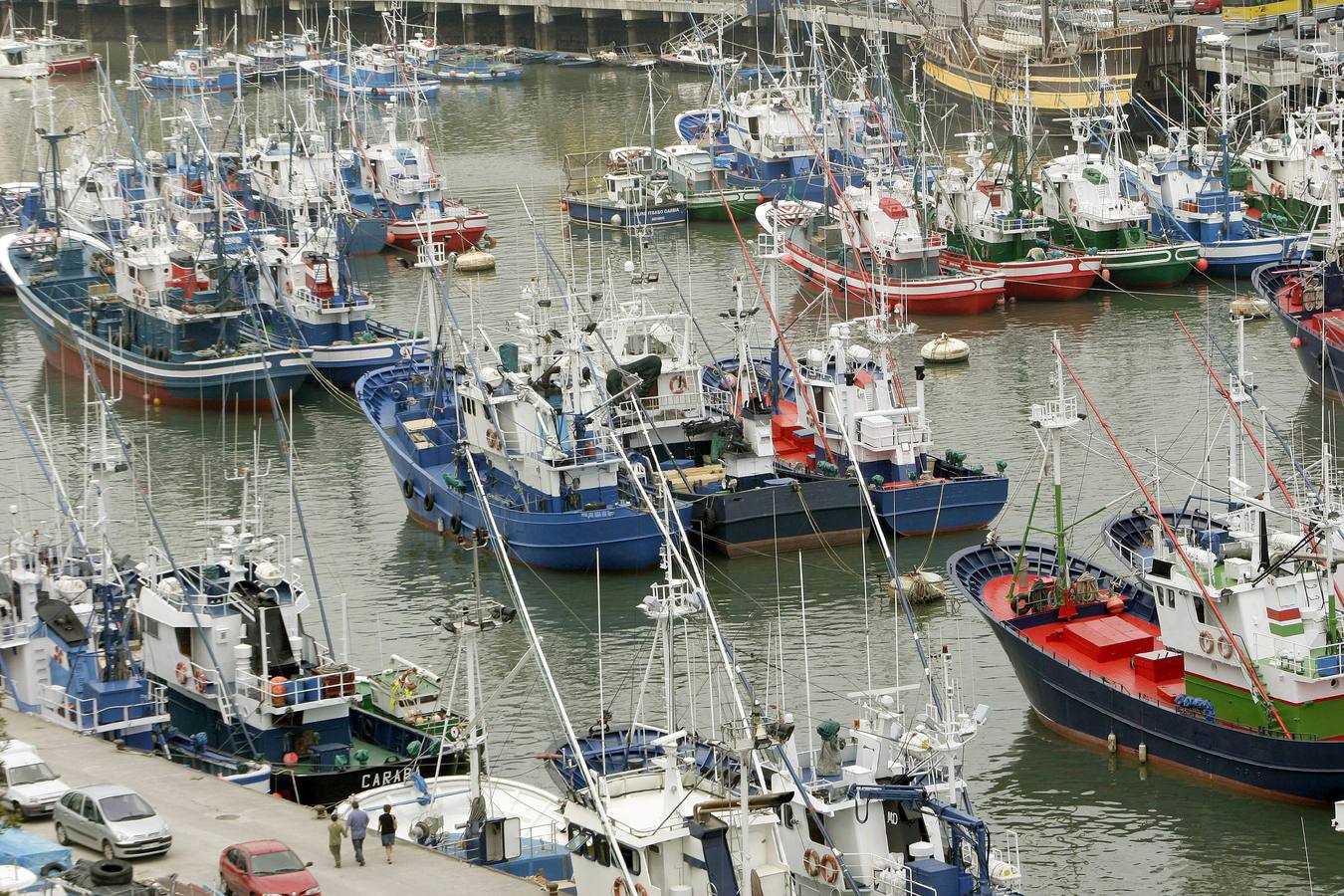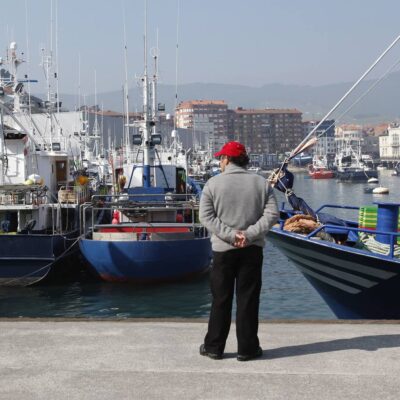
«This event is yet another step forward to internationalising the good name of Bermeo and its sector»

Aritz Abaroa
Mayor of Bermeo
Saying Bermeo is the tuna world capital is upheld when you refer to the figures, i.e. the fleet of this town makes 10% of the world tropical tuna catches. This town is also a good fishing practices benchmark. The fishing sector generates over 6,000 direct and indirect jobs, besides being present in multiple international management bodies.
In other words, it’s the ideal example of the good work in a sector combining tradition and avant-garde, which has known how to create the necessary synergies to maintain a key economic activity in its evolution. We’re talking to Aritz Abaroa, Mayor of Bermeo, about how they’re getting the town ready to hold Bermeo Tuna Forum.
What does tuna fishing mean for Bermeo economic and social activity?
Tuna fishing perfectly reflects our past, present and future. The fishing of tuna, that is, the albacore but also the tuna which have always been fished by the inshore fishing fleet; has a direct relationship with and direct influence on the town social and economic development. Bermeo has had this and continues to have it. The town has close ties with the sea and harbour, and has had those ties throughout its history. The people of Bermeo have been citizens which today we’d call entrepreneurs because during this social and economic development (plus everything related to the tuna sector) they began fishing always with a view to improving, and have developed this sector to the point where we’ve become a world power. And it’s this we wish to give value to because thanks to that effort we’ve managed to position Bermeo at an international level.
Furthermore, your fleet is an example in terms of sustainable management and good practices. How does collaboration work between sector companies, institutions and other bodies related to the tuna fishing value chain?
This collaboration framework is called the Bermeo Tuna World Capital association and came about to bring all the agents involved in this value chain together, both private and public agents. Our aim is to give value to our capacity and also the internationalisation of the sector and tuna fishing. One of the fundamental pillars is sustainability so we can continue this activity for which we are a reference; and that’s why via BTWC we’re working to identify the work lines: each party puts their willingness and capacity on the table, and it’s the association the one to encourage this joint work.
In this search to create common international framework the BTF idea came up, how did you receive this piece of news?
The idea of organising the BTF came about in the work institutions and private bodies are doing; and obviously from a local perspective as a town it’s great news. BTF is an opportunity and understood as such, since it’s a step in the internationalisation of Bermeo’s good name and its sector, not to mention it’s also an opportunity to lay the bases for the economic development of the town.
«BTF should help people really understand what it means to be the tuna capital of the world»
What does an event of this calibre mean for a town like Bermeo?
Above all, it’s a challenge from an organisation perspective, yet at the same time an opportunity from the perspective of positioning and internationalisation. With the organisation of an event of this calibre we’re looking for it to have impact in Bermeo. This internationalisation should have a feedback effect; however, with these events we have to get society to believe in said internationalisation, and feel they’re part of this tuna world capital in addition to comprehend we’ve all achieved this together, and as such it should have social support. That’s why I said it’s both a challenge and an opportunity.
How are you preparing the town with a view to this event?
There’s a work team with two essential lines of action. On the one hand, preparing the BTF debate forum and everything related to all the agents coming to take part; however, we also have a local work line, namely, organising events in the town so that the people of Bermeo can be participants thereof and there is also a direct impact on local economy. In this sense, we’re working on the organisation of events, visits, possible tasting workshops, etc. There are many things on the table, loads of ideas which little by little will be decided upon for their presentation.
What are the main conclusions you’d like left on the table after the event as a town of global reference for tuna fishing?
To really achieve the target of becoming an international benchmark, then society has to take part. These events must serve to make people feel really proud about and fully comprehend what a tuna world capital is and means. Putting it another way, any Bermeo citizen who bumps into anybody coming to Bermeo has to be capable of explaining to them why we’re a tuna world capital, besides making those who visit participants so they can truly feel they’re in this tuna world capital. That we are tuna world capital because we were and are a fishing town; moreover, we’ve known how to develop socially and economically linked to the sector. Likewise, that the people of Bermeo also understand our future is tied to the fishing sector. Things change and evolve, yet we have room for opportunity; and the sector and town have a commitment to the environment. So we must make them see we’re boosting this tuna value chain in a responsible manner.



